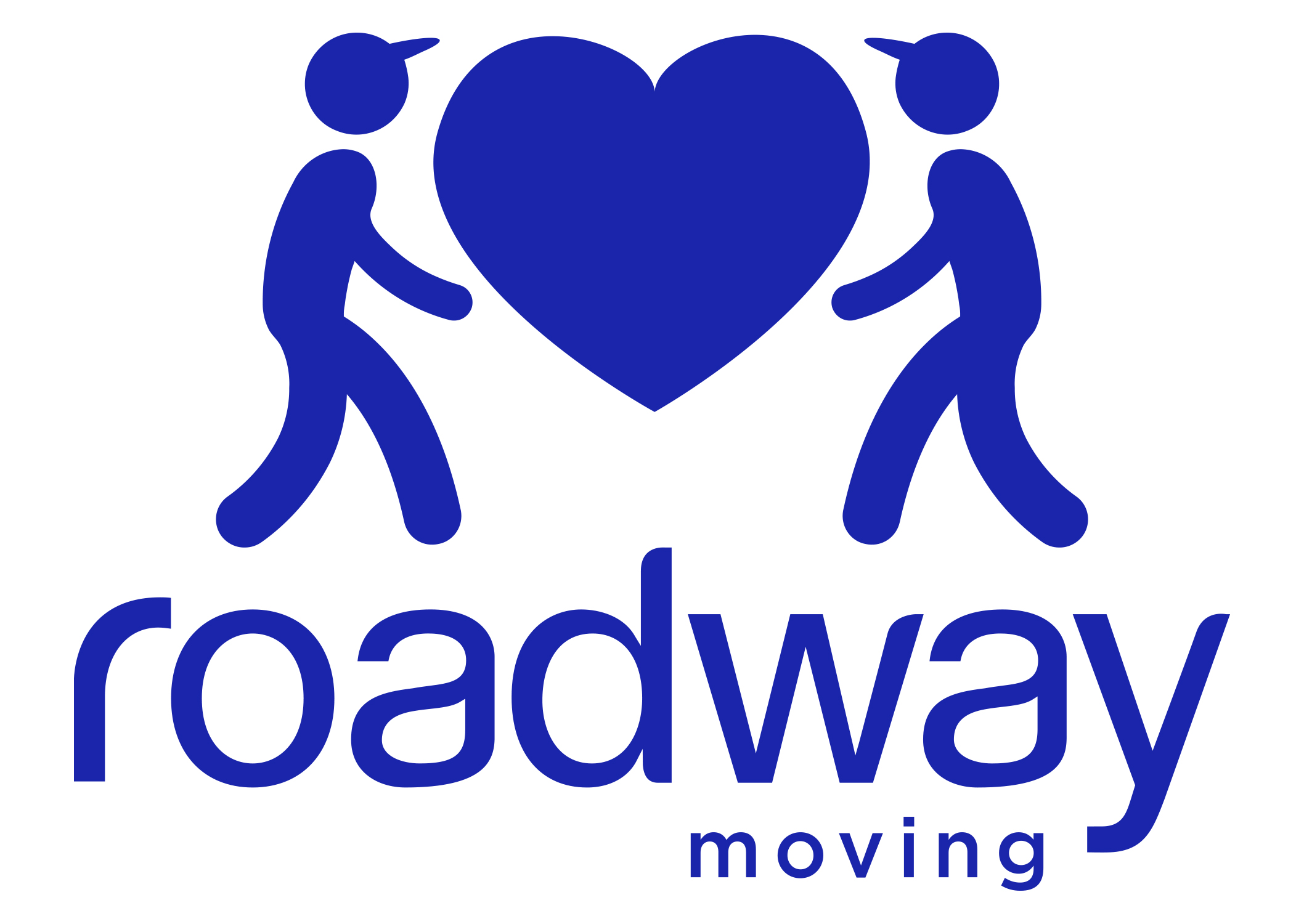Local moving companies in South Carolina
When you are heading from South Carolina to Charlotte, NC, you deserve movers who make your transition simple and stress-free.
Out of 40 South Carolina movers that handle state-to-state moves, here are the top 5 that can handle your move to Charlotte, NC.
- HD Auston Moving Systems: 4.64 out of 5 stars
- Smooth Move Charleston: 4.62 out of 5 stars
- TWO MEN AND A TRUCK: 4.62 out of 5 stars
- Ballantyne & Beyond Moving: 4.56 out of 5 stars
- Carey Moving & Storage: 4.52 out of 5 stars
Company Info
Years in Business: 79
DOT #: 271654
Services Offered
- Local moves
- Interstate moves
- International moves
- Packing
- Unpacking
- Offices
- Pianos
- Crating
- Storage
- Pay by credit card
Company Info
State license #: 9823
Years in Business: 12
DOT #: 2357653
Alternate Names: Go Smooth Move, LLC
Services Offered
- Local moves
- Interstate moves
- Packing
- Unpacking
- Offices
- Pianos
- Pool Tables
- Storage
- Pay by credit card
Company Info
State license #: 9664-B
Years in Business: 22
DOT #: 2527384
Alternate Names: Upward Endeavors, LLC
Services Offered
- Local moves
- Interstate moves
- Packing
- Unpacking
- Pianos
- Storage
- Safes
- Pay by credit card
Company Info
State license #: 9784-A
Years in Business: 16
DOT #: 2557751
Services Offered
- Local moves
- Interstate moves
- International moves
- Packing
- Unpacking
- Offices
- Pianos
- Crating
- Storage
- Fragile-only packing
- Pay by money order
- Pay by cash
- Pay by credit card
Company Info
State license #: 2973
Years in Business: 117
DOT #: 076235
Services Offered
- Local moves
- Interstate moves
- International moves
- Packing
- Unpacking
- Offices
- Crating
- Storage
- Safes
- Pay by credit card
Cost to move from South Carolina to Charlotte, NC
See the table below for average move cost ranges from South Carolina to Charlotte, NC, organized by service type and the size of your home.
| Move size | Moving company | Moving container | Rental truck |
|---|---|---|---|
| Studio / 1 bedroom | $507 – $1,952 | $442 – $1,118 | $109 – $167 |
| 2-3 bedrooms | $958 – $2,862 | $859 – $1,574 | $114 – $213 |
| 4+ bedrooms | $1,408 – $3,665 | $1,101 – $1,897 | $140 – $216 |
These cost ranges are approximate estimates based on a 111-mile move from South Carolina to Charlotte, NC using pricing data compiled by moveBuddha as of Jan 17, 2026. Every month, moveBuddha refreshes thousands of verified pricing entries from moving companies around the country to mirror seasonal changes and market trends. Final costs may shift with the scale of your move, selected add-ons, parking or access constraints, fuel rates, and schedule. Get multiple quotes to ensure you’re seeing accurate pricing.
Cost to hire professional movers from South Carolina to Charlotte, NC
Hiring movers for a studio apartment or one-bedroom home from South Carolina to Charlotte, NC, will cost between $507 and $1,952. The cost to move a two- to three-bedroom home will range from $958 to $2,862, and a large move will cost from $1,408 to $3,665.
Cost of moving containers from South Carolina to Charlotte, NC
If you’re moving from South Carolina to Charlotte, NC, expect to pay between $442 and $1,118 for a small load. For a home with two or three bedrooms, prices typically range from $859 up to $1,574. Larger moves of four bedrooms or more can run between $1,101 and $1,897. Check out our guide on PODS cost for more details.
Check out the most affordable moving container companies for your move from South Carolina.
Cost of moving truck rentals from South Carolina to Charlotte, NC
Renting a moving truck is usually your cheapest option, but keep in mind you’ll be handling all the loading, unloading, and driving yourself.
If you’re moving a studio or one-bedroom apartment from South Carolina to Charlotte, NC, with a rental truck, expect to spend between $109 and $167. For two to three bedrooms, rates typically fall between $114 and $213. Relocating a four-bedroom (or bigger) home? You’re likely looking at anywhere from $140 up to $216 for your rental truck.
These quotes include estimated fuel costs.
Compare local moving companies from South Carolina to Charlotte, NC
Here’s a quick comparison of the most popular services and discounts available for the top movers for your move:
| Company | Full Service | Antiques | Military Discount | Senior Discount |
|---|---|---|---|---|
| HD Auston Moving Systems | ✓ | × | × | × |
| Smooth Move Charleston | ✓ | × | × | × |
| TWO MEN AND A TRUCK | ✓ | × | × | × |
| Ballantyne & Beyond Moving | ✓ | × | × | × |
| Carey Moving & Storage | ✓ | × | × | × |
From our review of 3,179 movers, see how South Carolina movers match up to the nationwide percentage of movers offering these services and discounts:
| South Carolina | Nationwide | |
|---|---|---|
| Full Service | 98% | 96% |
| Antiques | 34% | 46% |
| Military Discount | 0% | 4% |
| Senior Discount | 0% | 4% |
Things to know before moving from South Carolina to Charlotte, NC
Before you break out the moving boxes, let’s compare life in Charlotte, NC to what you’re used to in South Carolina. We’ll dive into things like cost of living, local culture, everyday routines, and the area’s most popular spots.
Cost of living: South Carolina vs. Charlotte, NC
| South Carolina | Charlotte | |
|---|---|---|
| Average rent cost | $1,065 | $1,790 |
| Average home cost | $295,769 | $391,658 |
| Average income (per capita) | $63,623 | $64,814 |
| Cost of Living Index | 96 | 102 |
| Unemployment rate | 4.7% | 3.3% |
| State Income Tax | 7.0% | 4.5% |
Charlotte sources: Zumper, Zillow, Numbeo
- Rent in Charlotte is about 68% higher than in South Carolina, so make sure to budget extra for your monthly rent.
- In Charlotte, expect home prices to be about 32% higher than in South Carolina. Get ready for a bigger down payment, increased property taxes, and higher overall homeownership expenses.
- Since income levels in Charlotte are similar to those in South Carolina, your budget shouldn’t take a hit during your move.
- Charlotte has an unemployment rate 30% below South Carolina, which could mean a more favorable job market.
- Income taxes are 36% lower in North Carolina than in South Carolina. Lower income tax rates mean less money is withheld from your paycheck, giving you more flexibility to save, invest, or cover everyday expenses.
How life is different in Charlotte from South Carolina
| Charlotte | South Carolina | |
|---|---|---|
| Population | 874,579 | 5,373,555 |
| Political leaning | Republican 51-48 | Republican 58-42 |
| Summer high | 89ºF | 91ºF |
| Winter low | 30ºF | 33ºF |
| Annual rain | 43″ | 48″ |
| Annual snow | 2″ | 1″ |
| Crime index | 46.52 | 28.0 |
Wikipedia, AllTransit, Walk Score, NeighborhoodScout, AirNow
- In the most recent presidential race, both South Carolina and North Carolina leaned Republican.
- Summers in Charlotte usually hit highs of 89ºF, right in line with the average 91ºF you’re used to in South Carolina. So, you can expect a smooth transition in terms of temperature. Still, don’t forget to factor in the local humidity, typical weather patterns, and changes in energy costs to get a full sense of what summer will really feel like in your new place.
- In the coldest months, Charlotte typically drops to lows of 30ºF. That’s pretty similar to South Carolina, where temperatures reach 33ºF. Thankfully, you’ll experience predictable costs with few winter weather–related interruptions to your day-to-day life.
- You’ll get about 43 inches of rain each year in Charlotte, which is pretty close to the 48 inches you’re familiar with in South Carolina. However, even with similar rainfall totals, don’t be surprised if shifts in weather patterns and rainfall timing shake up your daily routine.
- In Charlotte, it snows about 2 inches annually while South Carolina gets 1 inch. With snowfall being similar, you’re likely to experience a smooth transition with no major surprises.
- Crime rates in Charlotte are higher than in South Carolina, with a crime index of 46.52 compared to 28.0. While this doesn’t have to be a dealbreaker, it’s a good idea to look into local crime data and consider how it could impact your everyday life.
Things to do in Charlotte
Whether you love scenic parks, world-class museums, thrilling sports, or renowned universities, Charlotte truly offers something for everyone.
Museums in Charlotte
- Bechtler Museum of Modern Art
- Billy Graham Library
- Carolinas Aviation Museum
- Charlotte-Mecklenburg Fire Education Center and Museum
- Charlotte Nature Museum in Freedom Park
Parks in Charlotte
- Arequipa Park
- Baxter Street Park
- Fourth Ward Park
- Frazier Park
- Independence Park
Sports teams in Charlotte
- Carolina Panthers
- Charlotte Hornets
- Charlotte FC
- Charlotte Checkers
- Charlotte Knights
Universities in Charlotte
- Central Piedmont Community College
- Johnson C. Smith University
- Johnson & Wales University
- Queens University of Charlotte
- University of North Carolina at Charlotte
Other considerations when moving to Charlotte, NC
- HOA rules: Check into any neighborhood or community rules on moving ahead of time to ensure a smooth move.
- Elevator reservation: Something you’ll want to sort out early is booking your building’s elevator and checking their rules for moving.
- Parking permits: In some cities, you’ll need a parking permit for your moving truck, so be sure to look up your new area’s rules before moving day.
- State licensing: For-profit household goods carriers in the state fall under the jurisdiction of the North Carolina Utilities Commission, Transportation Division. All legitimate movers should have a “C Number” issued by the commission, signifying that they’ve met minimum insurance requirements and adhere to the provisions outlined in the state’s Maximum Rate Tariff (MRT). Be sure to confirm your moving company is fully licensed before you book.
- State regulator: Verify your North Carolina moving license on the state regulator’s website, here.
- Moving permits: North Carolina does not require any moving permits, but it’s helpful to check local parking restrictions before moving into the state.
- Change of address: Make sure to submit your USPS change of address form at least one week before your move. You’ll be able to set your official move date, so your mail will be forwarded to North Carolina right on time. Get started here.
- Mover’s insurance: Choose Released Value Protection for no-cost, minimal coverage from movers, with responsibility limited to 60 cents per pound per article. For comprehensive coverage, explore alternatives with your chosen moving company or consider a third-party insurance provider.
- Moving checklist: Peace of mind matters. Our moving checklist keeps you organized and makes sure nothing slips through the cracks.
FAQ
How long does a move from South Carolina to Charlotte take?
How long it takes to move from South Carolina to Charlotte, NC depends on your starting point and the type of move you select. Regardless of your choice, packing and loading your belongings usually only takes a day or less, even when you’re doing it yourself.
Planning a move from northern South Carolina to Charlotte? Be prepared for a longer haul. If you’re renting a truck, set aside one to two days for the journey. Your travel time will depend on your route and how many breaks you take.
With professional movers or moving containers, delivery times to Charlotte from South Carolina can range from a few days to a couple of weeks, depending on the company’s schedule and transit logistics. You can always ask for a general timeline before booking.
How far in advance should I book movers when moving from South Carolina to Charlotte?
With a 111-mile move from South Carolina to Charlotte, it’s smart to lock in your moving date as soon as your plans are set. For the best availability and pricing, try to book your move two to three months in advance.
What time of year is the cheapest to move to Charlotte, NC?
Summer highs in Charlotte can hit 89°F, while winter lows drop to 30°F. That’s why most people moving from South Carolina to Charlotte choose the milder spring or fall months. But if you’re looking to avoid the crowds and maybe save some money, try planning your move for the summer or winter instead, even if it means braving a little extra heat or cold. Check out more tips on peak moving seasons.
Helpful moving resources
South Carolina moving services
Popular South Carolina routes
- South Carolina to North Carolina car shippers
- South Carolina to California
- South Carolina to Florida
- South Carolina to Georgia
- South Carolina to Illinois
- South Carolina to Michigan
- South Carolina to New York
- South Carolina to North Carolina
- South Carolina to Ohio
- South Carolina to Pennsylvania
- South Carolina to Texas
- See All Moving Routes
Not what you were looking for?
Check out other categories that can help you find the information you need!























